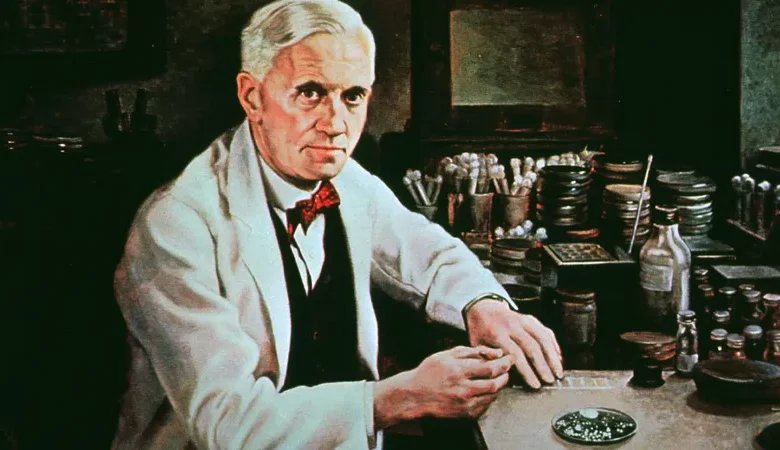The 10 Most Important Drugs in Human History

The evolution of drug use and its history in human civilization is a journey spanning millennia. Early humans relied on plant-based medicines to treat ailments and pass down healing knowledge through generations. Ancient civilizations, such as Mesopotamia, Egypt, Greece, and India, further explored herbal medicines, shaping traditional healing practices that persisted for centuries. During the Middle Ages, alchemy and the study of chemical processes laid the groundwork for modern pharmacology. The Renaissance saw the birth of modern medicine, with pioneers like Paracelsus advocating for chemical remedies. The 19th century witnessed the isolation of active compounds from plants, leading to the development of purified drugs and the rise of the pharmaceutical industry. The 20th century brought revolutionary breakthroughs, notably the discovery of antibiotics, transforming medicine’s ability to combat infectious diseases. Recent advances in personalized medicine and biotechnology continue to push the boundaries of drug research and development, promising more tailored and effective treatments for individuals.
Throughout history, drugs have played an integral role in human health and well-being. The use of herbal medicines in ancient times and the emergence of chemical remedies in the Renaissance shaped the foundations of modern pharmacology. The discovery of antibiotics in the 20th century revolutionized medicine, significantly reducing mortality rates from infectious diseases.
Today, the pharmaceutical industry continues to thrive, focusing on research and development in various therapeutic areas, including cancer, chronic conditions, and neurological disorders. The advancements in personalized medicine and biotechnology offer new opportunities to tailor treatments to individual patients based on their genetic makeup, improving treatment efficacy and minimizing side effects. The journey of drug use in human civilization reflects our relentless pursuit of knowledge and innovation, providing hope for a healthier future. This article explores the ten most important drugs to humanity, highlighting their historical significance, therapeutic value, and contributions to medical progress.
The 10 Most Important Drugs in Human History
From ancient herbal remedies to cutting-edge pharmaceutical innovations, certain drugs have had a profound and lasting impact on human health and well-being. The10 most important drugs in human history are:
1. Penicillin
Discovered by Scottish biologist Alexander Fleming in 1928, penicillin revolutionized medicine as the first antibiotic. This groundbreaking drug proved highly effective against bacterial infections, including life-threatening diseases such as pneumonia and sepsis. During World War II, penicillin played a crucial role in saving countless lives of wounded soldiers. Its discovery marked the beginning of the antibiotic era, transforming the treatment of infectious diseases and reducing mortality rates worldwide.
2. Vaccines
Vaccines are one of the most significant medical advances in preventing infectious diseases. Developed to stimulate the body’s immune system to produce protective antibodies, vaccines have been instrumental in eradicating or significantly reducing the prevalence of deadly diseases such as smallpox, polio, measles, and diphtheria. Vaccines have saved millions of lives and continue to be a cornerstone of public health efforts to control and prevent infectious diseases.
3. Insulin
The discovery of insulin in 1921 by Frederick Banting and Charles Best revolutionized the treatment of diabetes. Prior to insulin, individuals with type 1 diabetes faced a dire prognosis, as there was no effective treatment for this condition. Insulin therapy provided a life-saving treatment, enabling patients to manage their blood sugar levels and live healthier and longer lives.
4. Aspirin
Aspirin, derived from willow bark, has a long history of medicinal use dating back to ancient civilizations. Its modern synthesis in the late 19th century by Felix Hoffmann at Bayer marked a significant milestone in pain relief and inflammation control. Aspirin’s widespread use has made it one of the most commonly used drugs globally, providing relief from pain, fever, and inflammation, as well as reducing the risk of cardiovascular events.
5. Chlorpromazine
Introduced in the 1950s, chlorpromazine was the first antipsychotic medication, heralding a new era in the treatment of mental illnesses. It revolutionized the care of individuals with conditions such as schizophrenia and bipolar disorder, significantly improving their quality of life by alleviating symptoms and enabling better management of these complex disorders.
6. Oral Contraceptives
The development of oral contraceptives, commonly known as birth control pills, in the 1960s, had a profound impact on women’s reproductive health and societal dynamics. These pills offered women greater control over family planning, enabling them to pursue education, careers, and personal goals. Oral contraceptives have played a pivotal role in advancing women’s rights and shaping modern family planning practices.
7. Morphine
Morphine, derived from the opium poppy, is one of the oldest and most potent pain-relieving drugs known to humanity. Its discovery in the early 19th century by Friedrich Sertürner revolutionized pain management and provided relief to patients suffering from severe pain, including those undergoing surgery or experiencing terminal illnesses.
8. HIV Antiretrovirals
The development of antiretroviral drugs for the treatment of HIV/AIDS in the 1990s marked a turning point in the global fight against this devastating disease. Antiretrovirals effectively suppress the replication of the HIV virus, slowing down its progression and allowing individuals to live longer, healthier lives. These drugs have transformed HIV/AIDS from a fatal diagnosis to a manageable chronic condition.
9. Statins
Statins are a class of drugs used to lower cholesterol levels and reduce the risk of cardiovascular disease. Introduced in the late 20th century, statins have become widely prescribed for patients with high cholesterol and those at risk of heart disease. Their widespread use has contributed to a significant reduction in cardiovascular-related deaths, making them a cornerstone of cardiovascular medicine.
10. Anesthetics
The discovery and development of anesthetics in the 19th century transformed the practice of surgery and patient care. Anesthetics, such as ether and chloroform, allowed for painless surgical procedures, increasing the safety and success rates of surgeries. Today, modern anesthetics enable complex surgeries and medical interventions, enhancing patient outcomes and reducing pain and discomfort during medical procedures.
Conclusion
The ten drugs discussed in this article represent some of the most important medical advances in human history. From the discovery of penicillin to the development of antiretrovirals for HIV/AIDS, these drugs have had a transformative impact on human health, revolutionizing the treatment of diseases, alleviating suffering, and saving countless lives. These medical breakthroughs highlight the power of scientific research, innovation, and collaboration in advancing healthcare and improving the well-being of humanity. As medical science continues to evolve, the ongoing quest for new and innovative drugs promises to shape the future of medicine and further improve the quality of life for individuals around the world.





